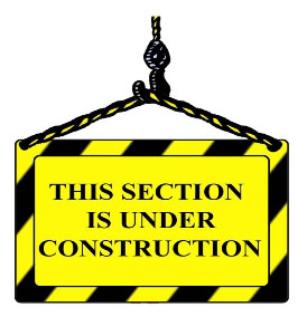Directions
These calculators are designed to resemble spreadsheet calculators that can be printed as reports for project recordkeeping. The term project, with regards to these calculators, may refer to an engineered design, homework problem, tutorial problem, hobby design or self-study. The workflow for each calculator is from top to bottom.
- Enter the diameter of the sphere or ball.
- Enter the applied load or preload.
- Select or enter the material properties for Body I, i.e., the sphere.
- Select or enter the material properties for Body II, i.e., the flat plate.
- Press the calculate button.
- Print a report for your project recordkeeping by pressing the print button.
Assumptions
- Surfaces in contact are perfectly smooth
- Material limits are not exceeced
- Materials are homogeneous
- No frictional forces within the contact area
Equations
- Equivalent Modulus of the Two Bodies
$$E_e = {1\over {{{1-\nu_1^2}\over E_1} + {{1-\nu_2^2}\over E_2}}}$$
- Equivalent Diameter of the Two Bodies
$$D_e = \frac{3}{4}\frac{D_1D_2}{D_1+D_2}$$
- Radius of Elliptical Contact along X
$$a = \alpha\left(\frac{F_c D_e}{E_e}\right)^{1\over 3}$$
- Radius of Elliptical Contact along Y
$$b = \beta\left(\frac{F_c D_e}{E_e}\right)^{1\over 3}$$
- Eccentricity of the Elliptical Contact
$$e = \left(1-\frac{b^2}{a^2}\right)^{1\over2}\quad for \quad a \gg b$$
- Maximum Hertzian Pressure
$$P_{max} = \frac{3F_c}{2\pi ab}$$
- Deflection of the Contact Zone
$$\delta_c = \lambda\left(\frac{F_c^2}{D_eE_e^2}\right)^{1\over 3}$$
- Stiffness
$$k_c = \frac{3}{2\lambda}\left({F_cD_eE_e^2}\right)^{1\over 3}$$
- Max Tensile Stress at Radius a, Body 1
$$\sigma_{tmax, 1a} = P_{max}\left(1-2\nu_1\right)\frac{b}{ae^2}\left[\frac{1}{e} tanh^{-1}e-1\right]$$
- Max Tensile Stress at Radius b, Body 1
$$\sigma_{tmax,1b} = P_{max}\left(1-2\nu_1\right)\frac{b}{ae^2}\left[1-\frac{b}{ae}tan^{-1}\left(\frac{ea}{b}\right)\right]$$
- Max Tensile Stress at Radius a, Body 2
$$\sigma_{tmax,2a} = P_{max}\left(1-2\nu_2\right)\frac{b}{ae^2}\left[\frac{1}{e} tanh^{-1}e-1\right]$$
- Max Tensile Stress at Radius b, Body 2
$$\sigma_{tmax,2b} = P_{max}\left(1-2\nu_2\right)\frac{b}{ae^2}\left[1-\frac{b}{ae}tan^{-1}\left(\frac{ea}{b}\right)\right]$$
- Max Shear Stress in both Bodies
$$\tau_{max} = \left[0.3906\left(\frac{b}{a}\right)^5-1.1198\left(\frac{b}{a}\right)^4+1.2448\left(\frac{b}{a}\right)^3-0.7177\left(\frac{b}{a}\right)^2+0.2121\left(\frac{b}{a}\right)+.3\right]P_{max}$$
- Depth of Max Shear Stress in both Bodies
$$z = \left[-0.651\left(\frac{b}{a}\right)^4+1.6262\left(\frac{b}{a}\right)^3-1.2726\left(\frac{b}{a}\right)^2-0.0077\left(\frac{b}{a}\right)+.7851\right]*b;$$
- Max Allowable Contact Force
$$F_{c,~max} = \left(\frac{2\pi \alpha\beta P_{f}}{3}\right)^3\left(\frac{D_e}{E_e}\right)^2$$
$$cos\theta = \frac{D_1D_2}{D_1+D_2}\sqrt{\frac{1}{D_1^2}+\frac{1}{D_2^2}+\frac{2}{D_1D_2}cos{2\phi}}$$
- Transcendental functions of the auxilliary angles, expressed in terms of elliptic integrals
$$for\quad cos\theta\le 0.9 $$
$$\alpha = 23.43 cos^5\theta-41.83 cos^4\theta+27.38 cos^3\theta-6.72 cos^2\theta+1.29 cos\theta+0.998$$
$$\beta = -0.999 cos^5\theta+1.77 cos^4\theta-1.33 cos^3\theta+0.59 cos^2\theta-0.68865 cos\theta+1$$
$$\lambda = -1.55 cos^5\theta2.68 cos^4\theta-1.76 cos^3\theta0.3 cos^2\theta-0.04 cos\theta+0.75$$
$$for\quad cos\theta>0.9 $$
$$\alpha = 6269014.5cos^5\theta-29371139.2cos^4\theta+55036391.2cos^3\theta-51557740.6cos^2\theta+24146276.0cos\theta-4522790.6;$$
$$\beta = -70684.5cos^5\theta+331436.0cos^4\theta-621625cos^3\theta+582926cos^2\theta-273306.3cos\theta+51254.0;$$
$$\lambda = -98958.3cos^5\theta+462760.4cos^4\theta-865562.5cos^3\theta+809436.1cos^2\theta-378446.2cos\theta+70770.7;$$
Background
